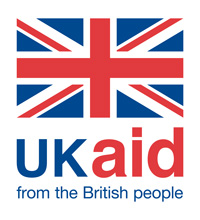From July 2016 to June 2019, Humanity & Inclusion ran a project to improve data collection on persons with disabilities in humanitarian crises. As part of this project, the Washington Group Questions (WGQs) were tested and assessed for use in humanitarian response contexts and the findings were used to develop learning on the use of the WGQs by humanitarian actors.
Please use the following links to skip to a section:
- Humanitarian actors lack information and knowledge about available or appropriate tools to collect disability data. They often use binary 'yes/no' questions, such as “do you have a disability or medical condition”, which lead to underreporting.
- Humanitarian actors do not know how many persons with disabilities are affected in a given crisis.
- Without knowing the number of persons with disabilities, humanitarian actors are not equipped to identify and address the needs of persons with disabilities, or design and implement inclusive projects.
The Washington Group on Disability Statistics was established in 2001 under the UN Statistical Commission. Its goal is to develop and test tools to collect internationally comparable disability statistics, and to help actors better identify persons with disabilities.
The WGQs original purpose is to generate reliable and comparable data on persons with disabilities during national level data collection exercises. In humanitarian action, the WGQs can be used to measure access rates of persons with disabilities to humanitarian programmes and services.
► Factsheet - Collecting data in humanitarian action using the WGQs (pdf, 159 KB)
In the initial stage of the project, Humanity & Inclusion piloted the use of the Washington Group Short Set of questions in humanitarian settings with key humanitarian actors.

The Disability Data in Humanitarian Action project was funded with UK aid from the UK government.
As part of its Disability Strategy 2018-2023 (pdf, 1 MB), the UK government aims to strengthen disability inclusion in policies and programmes across many sectors and levels. The strategy includes a commitment to promote the routine, systematic collection and use of disaggregated data using tested tools such as the WGQs, and this project is contributing to achieving this goal.
Humanity & Inclusion leads the project in partnership with the Washington Group on Disability Statistics and the International Disability Alliance (IDA). An Advisory Steering Group guides, supports and promotes the project throughout all of its phases.


- Implement an action-research to test and assess of the use of the WGQs in humanitarian action in Jordan, the Democratic Republic of Congo and the Philippines.
- Create a learning toolkit designed specifically for humanitarian actors using the results of the action-research. Use the results of the action research to create learning materials and guidance designed specifically for humanitarian actors.
- Disseminate the action-research findings and learning toolkit, advocate for the use of the WGQs in humanitarian action where appropriate, and build capacity of humanitarian actors using the learning toolkit.
► Infographic: Project overview (pdf, 349 KB)
The action-research aimed to:
- Understand how the WGQs performed in different humanitarian settings and sectors of intervention to identify persons with disabilities.
- Identify the process necessary for humanitarian actors to collect useful and quality data using the WGQs.
The action-research was implemented with humanitarian actors working in different sectors and humanitarian contexts, to integrate the WGQs in their existing practices.
Humanity & Inclusion and Leonard Cheshire collaboratively wrote a summary review (available below) which includes all the findings from the action-research.
Collecting Data for the Inclusion of Persons with disabilities in Humanitarian Action – The Application of the WGQs
59 staff from 29 different organisations working in 22 different countries were consulted to inform the development of the learning toolkit. Combined with the findings from the action-research, this feedback has informed what materials were to be developed, for what audiences, and in what priority.
Specific focus has been given to the development of open source materials that are accessible with screen readers, on mobiles, and in hard to reach locations. Subject matter experts have supported the development of the content, which has since been tested across 13 countries by 9 organisations.
Learning Toolkit
► E-Learning: Collecting Data for the Inclusion of Persons with Disabilities in Humanitarian Action – The Application of the WGQs
(Available in 4 languages – English, French, Arabic, and Spanish.)
This 2-hour course has been designed to support humanitarian programme staff understand, plan for and use the WGQs to identify persons with disabilities in humanitarian action. With case studies, practical examples and a wealth of supporting resources, the e-learning is an essential entry point for all programme staff interested in understanding more about how to use the WGQs.
The e-learning is available on:
► disasterready.org (you first need to sign up for an account)
[French] [Arabic] [Spanish]
► kayaconnect.org (accessible for mobile phones and tablets)
[French] [Arabic]
Organisations interested to host the e-learning internally are welcome to contact us.
► Training pack for enumerators using the WGQs in humanitarian action (zip, 16.6 MB)
[French] [Arabic] [Spanish]
Developed with RedR UK, this training pack provides guidance, session plans and activities to deliver training to enumerators on using the WGQs in humanitarian action. The package has been designed to be adapted to the audience as necessary.
Supporting resources
The following supporting resources have been developed to support the e-learning and training pack.
► How to ask the WGQs - Do’s and Don’ts (pdf, 192 KB)
[French] [Arabic] [Spanish]
► Planning checklist - Using the WGQs in Humanitarian Action (pdf, 154 KB)
[French] [Arabic] [Spanish]
► WGQs - Frequently asked questions (pdf, 133 KB)
[French] [Arabic] [Spanish]
^ Back to top of page














 The difference you make
The difference you make Our promise to you
Our promise to you Our finances
Our finances

